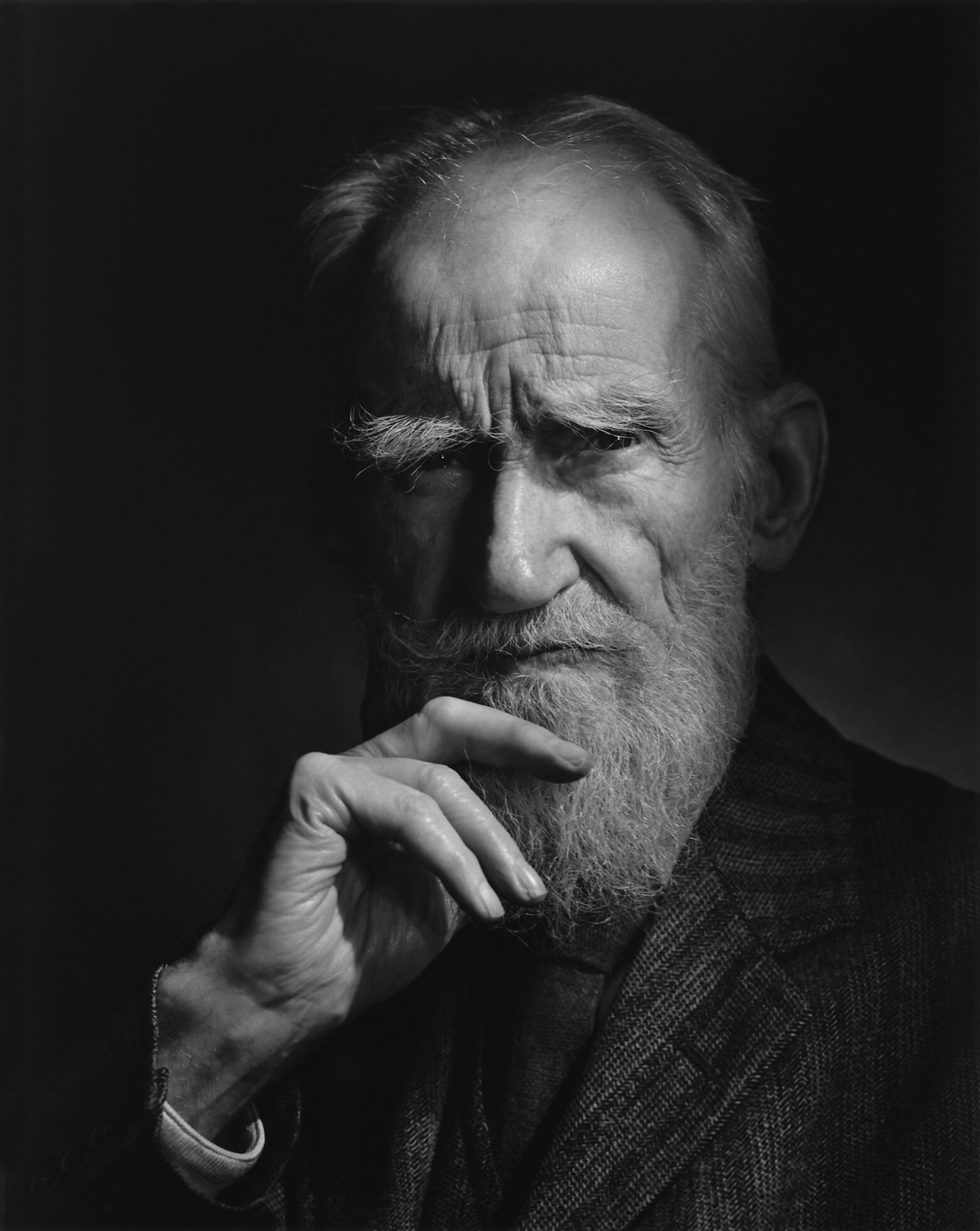
The Lord Chamberlain’s Examiner of Plays especially irked him:

Ibsen’s plays and Fielding’s expulsion from playwriting inspired him to write his own plays on the social injustices of the world around him, including the late nineteenth century censorship of plays, continued from Prime Minister Walpole’s rein in the mid 1740s. Two of his greatest influences were Henrik Ibsen and Henry Fielding.

He wrote 60 plays, most of which deal with social themes such as marriage, religion, class government and health care. He was the first person to be awarded the Nobel prize for Literature as well as an Oscar (for his work on Pygmalion, which was an adaptation of his play of the same name). In 1898 he married fellow Fabian member and Irish heiress Charlotte Payne-Townsend. In his personal life, Shaw was an avid Socialist and a member of the Fabian society. He is quoted as saying that “Schools and schoolmasters, as we have them today, are not popular as places of education and teachers, but rather prisons and turnkeys in which children are kept to prevent them disturbing and chaperoning their parents”. Shaw attended various schools throughout his youth but always harboured an animosity towards schools and teachers. Shaw’s works concerned themselves mostly with prevailing social problems, specifically with what he saw as the exploitation of the working middle class.

He began his literary career as a novelist. Although he was best known for drama, he was also proficient in the areas of journalism, music and literary criticism. George Bernard Shaw was born on Jin Dublin Ireland the son of a civil servant.


 0 kommentar(er)
0 kommentar(er)
